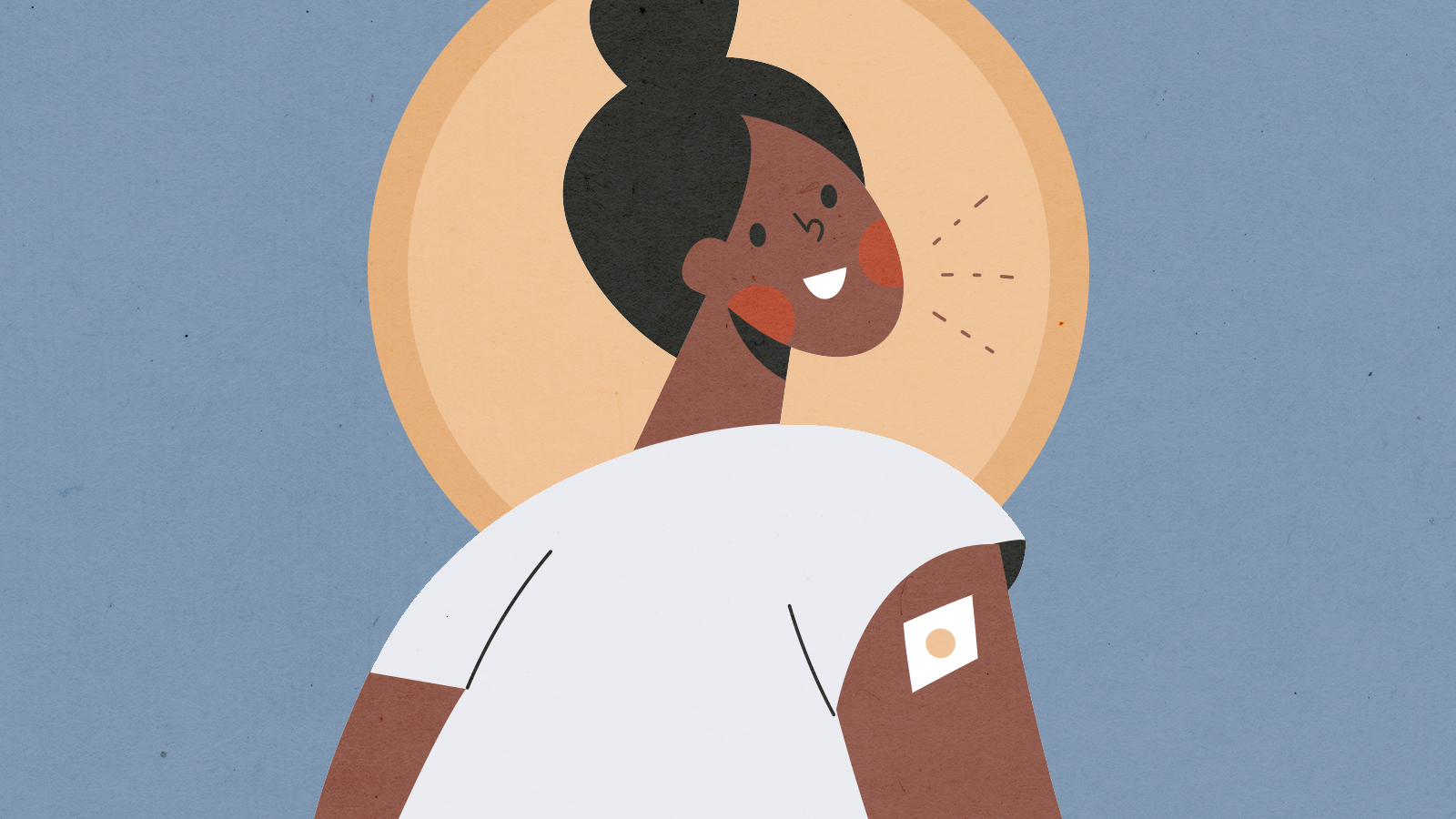The week's best parenting advice: January 18, 2022
How well vaccines are working for teens, why kids are accidentally consuming edibles, and more


A free daily email with the biggest news stories of the day – and the best features from TheWeek.com
You are now subscribed
Your newsletter sign-up was successful
1. Vaccines are keeping teens out of the hospital
Nearly all teenagers needing intensive care for COVID-19 are unvaccinated, according to a new study cited by Annabelle Timsit in The Washington Post. In a sample of 1,222 patients between 12 and 18 years old who were hospitalized from June through October last year, only 299 were fully vaccinated and 445 were admitted for COVID-19. Forty percent of those with the virus were admitted to the intensive care unit, all but two of whom were unvaccinated. And of those who required life support, all but one was unvaccinated. All told, the Pfizer-BioNTech vaccine "prevented 94 percent of hospitalizations and was 98 percent effective at keeping patients out of intensive care or from requiring life support," writes Timsit.
2. Young kids are accidentally consuming edibles
As more states legalize cannabis, a rising number of kids are accidentally consuming edibles, writes Christina Caron in The New York Times. Edibles often come in the form of gummies or cookies, which makes them difficult for kids to resist. Nationally, the number of exposures to marijuana edibles among kids under 13 rose from 187 in 2016 to more than 3,100 — most of whom were under six years old — by 2020. Symptoms vary depending on how much the child consumes. In rare cases, children had multiple seizures, were unresponsive, or had difficulty breathing, but no children have died. If you suspect your child has consumed edibles, it's important to call Poison Control right away. And in order to prevent such a mix-up, keep edibles out of reach. "Locked is best, if possible," says Kaitlyn Brown, the clinical managing director of the American Association of Poison Control Centers.
The Week
Escape your echo chamber. Get the facts behind the news, plus analysis from multiple perspectives.

Sign up for The Week's Free Newsletters
From our morning news briefing to a weekly Good News Newsletter, get the best of The Week delivered directly to your inbox.
From our morning news briefing to a weekly Good News Newsletter, get the best of The Week delivered directly to your inbox.
3. How failing at things can help you succeed at parenting
Adults are good at a lot of things, but trying new things is often not one of them. That's unfortunate, writes Tom Vanderbilt, because teaching kids "the importance of play, the inevitability and necessity of making mistakes, the usefulness of trying new things simply for the sake of trying them," is part and parcel of parenting. Risking failure at unfamiliar hobbies — such as surfing or painting — not only sets a good example, it can also help parents build "re-enactive empathy," or an appreciation for the challenges confronting our kids, who are beginners at practically everything. Plus, overcoming novel challenges can make the everyday struggles of parenting seem more manageable. "To paraphrase Nietzsche, what does not kill you makes you a better parent," Vanderbilt writes.
4. Can you reuse a KN95?
Experts recommend that adults and children use high-quality KN95 and N95 respirators to protect themselves from COVID-19, but these masks are expensive and often in short supply, writes Angelique Serrano in Romper. Technically, N95s and KN95s are intended for one-time use, but those of us who aren't in a high-risk health-care setting can reuse them "as long as the mask has no visible damage and maintains a good seal or fit next to [a person's] face," says infectious disease specialist Dr. Emily P. Hyle. According to the CDC, if you've worn the mask over five times, it's time to throw it out. "For younger kids who may struggle to keep a mask on or touch their face a lot, a sturdy, protective washable mask that fits them well may make more sense," writes Serrano.
A free daily email with the biggest news stories of the day – and the best features from TheWeek.com
5. Helping kids with gym class anxiety
Physical education is important, but it can be stressful for children who aren't athletic or struggle with body confidence, writes Taryn Herlich in Parents. If your child mentions a problem in P.E. class, hear them out in a non-judgemental way and validate their feelings before trying to pinpoint the underlying issue. It's likely that the child is feeling insecure about their athletic abilities, appearance, or sense of belonging, in which case it's important to remind them that "whatever takes place in gym class does not determine their self-worth." There's no point in trying to improve their athletic skills; it's much more important that the child feels secure in themselves overall, which can help them manage specific stressors like P.E. If there is a bully involved, help your child come up with a "script" for responding in such a situation — and consider speaking with the school about changing gym classes.
Stephanie H. Murray is a public policy researcher turned freelance writer.
